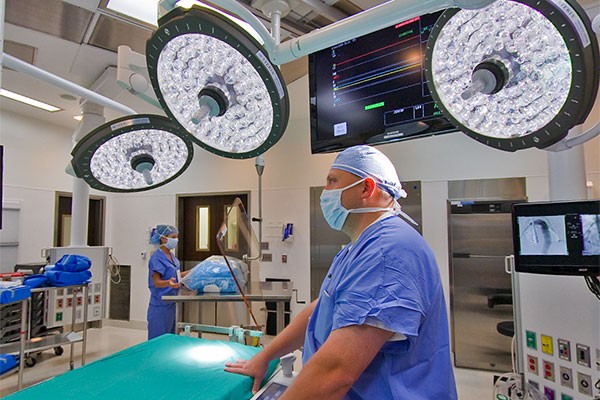Cleveland Clinic Closes Q4 Strong But Ultimately Logs $1.2B Net loss for 2022.
- 4 Mar, 2023
- 2251 views
Nonprofit health system Cleveland Clinic reported a US$211 million operating loss for the year due to rocketing expenses. Over US$1 billion of investment losses offered little relief.
A turnaround final quarter wasn’t enough to dig Cleveland Clinic Health System’s finances out of the hole for 2022.

The nonprofit reported Wednesday afternoon a US$105 million operating income for the final quarter of 2022, ended Dec. 31. A US$238.2 million investment gain also helped propel the organization to a net profit of US$290.1 million.
These numbers were behind the US$196.8 million operating income and US$532.8 million net income Cleveland Clinic enjoyed during the fourth quarter of 2021.
Still, the gains somewhat blunted the more than US$1.5 billion net loss Cleveland Clinic was shouldering after the year’s first nine months.
All told, the system wrapped 2022 with a US$211.3 million operating loss as just over US$1 billion of investment losses pushed Cleveland Clinic to more than US$1.2 billion in net losses. During the previous year, it had reported US$746.3 million in operating income, US$1.4 billion of investment returns and a $2.2 billion excess of revenues over expenses.
Total unrestricted operating revenues for the quarter landed at US$3.5 billion, a 5.5 per cent year-over-year increase. Total unrestricted operating revenues for the year grew 4.5 per cent year over year to US$3.5 billion.
Similar to much of the hospital and health system industry, those revenue increases were outpaced by rising costs.
Total expenses (before interest, depreciation and amortization) rose 8.5 per cent year over year to US$3.2 billion while full-year total expenses rose 13.6 per cent year over year to US$12.4 billion. Salary, wage and benefits expenses played a key role here, increasing by 6.9 per cent year over year to nearly US$2 billion for the quarter and by 13.8 per cent year over year to US$7.7 billion for the full year.
CEO and President Tom Mihaljevic, M.D., had signaled the operating losses to employees back in January during his annual “State of the Clinic” video address, pointing to labor supply shortages, wage increases and inflation’s impact on pharmaceutical and supply costs as major culprits.
He said the system had “hired a record number of caregivers” to combat the issue and would continue to offer monetary incentives for nurse referrals. He also said “it is expected for everyone to contribute” to finding ways in which the organization could further cut down its spending.
“Managing through the current reality is no different than what any of us would do at home: When costs go up, we reduce spending and use fewer resources,” he said in the January video presentation. “This year, we put forward a plan to serve more patients efficiently. Some administrative hiring has been put on hold and discretionary expenses reduced. These decisions are for the greater good.”
Cleveland Clinic is one of several major nonprofit health systems to see reduced or negative financial operations through 2022. This week, Mayo Clinic reported a halved US$595 million annual operating income as UPMC fell more than half a billion to a US$238 million annual operating income. The numbers were worse for Kaiser Permanente, which in mid-February disclosed an operating loss of US$1.3 billion and a net loss of nearly US$4.5 billion.
By Dave Muoio
Clevenard blogs
- Category:
- Health
- No comments




